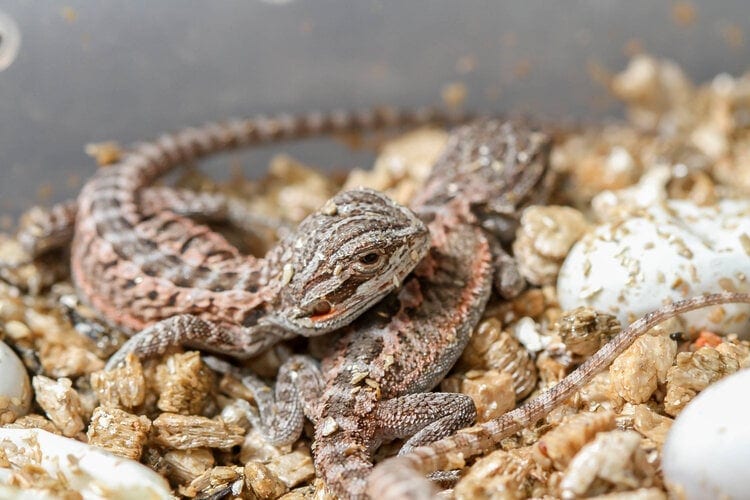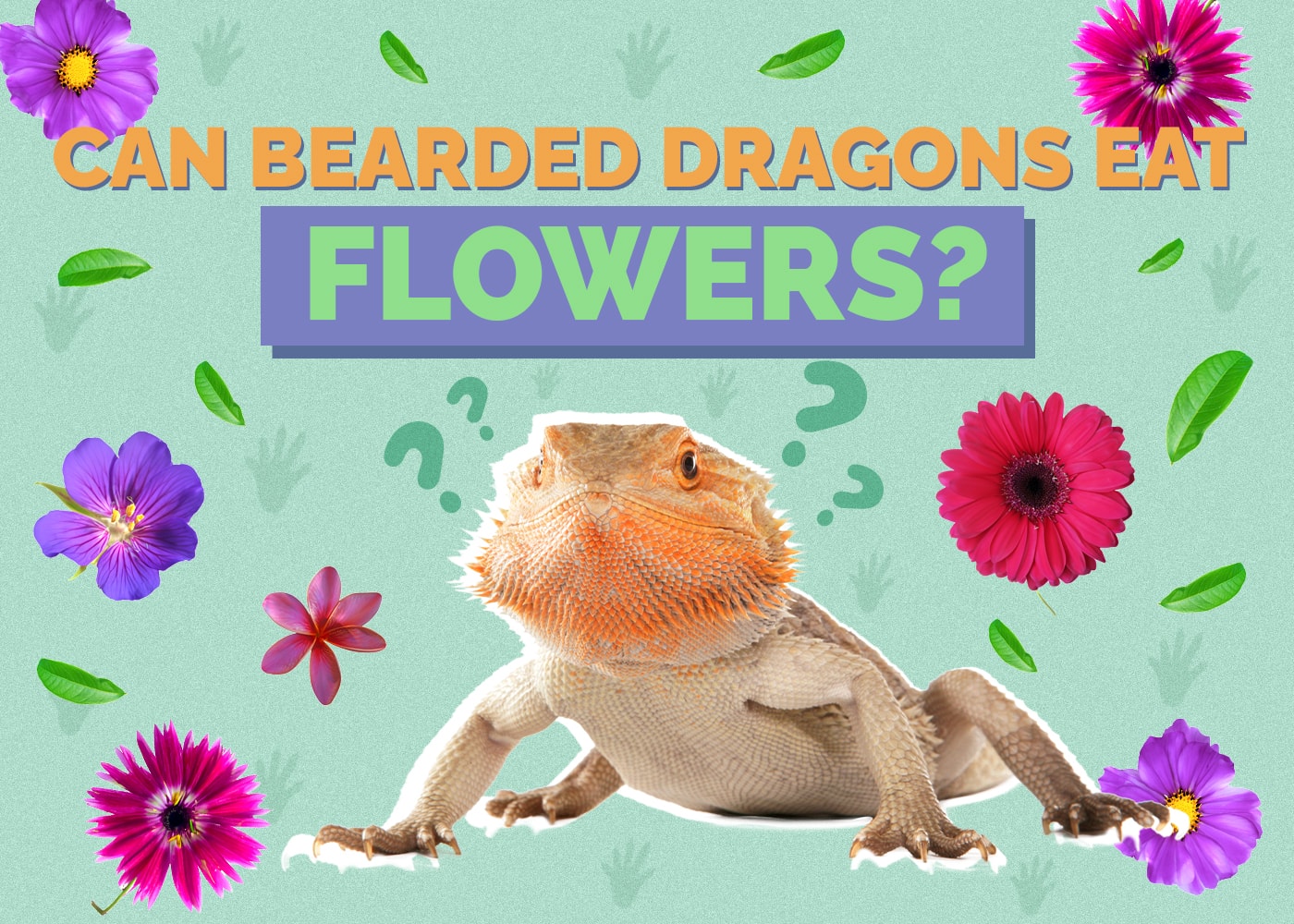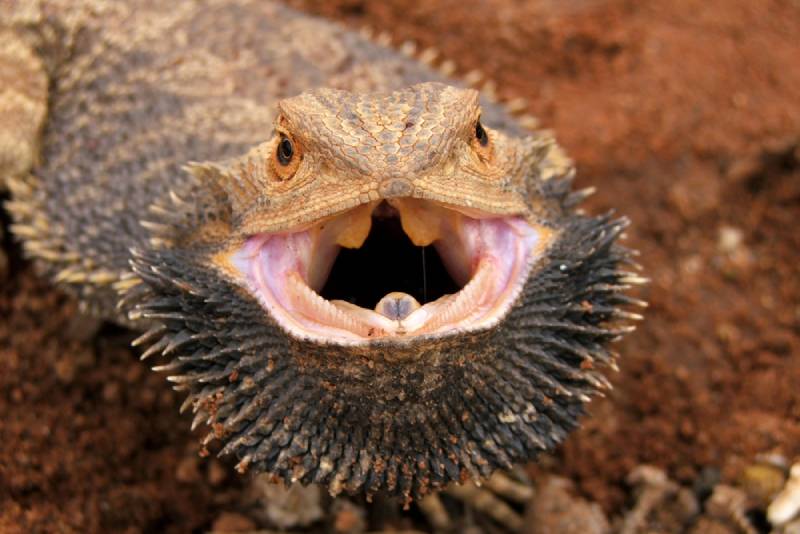Can Bearded Dragons Eat Peaches? Vet Approved Nutrition Facts
Updated on
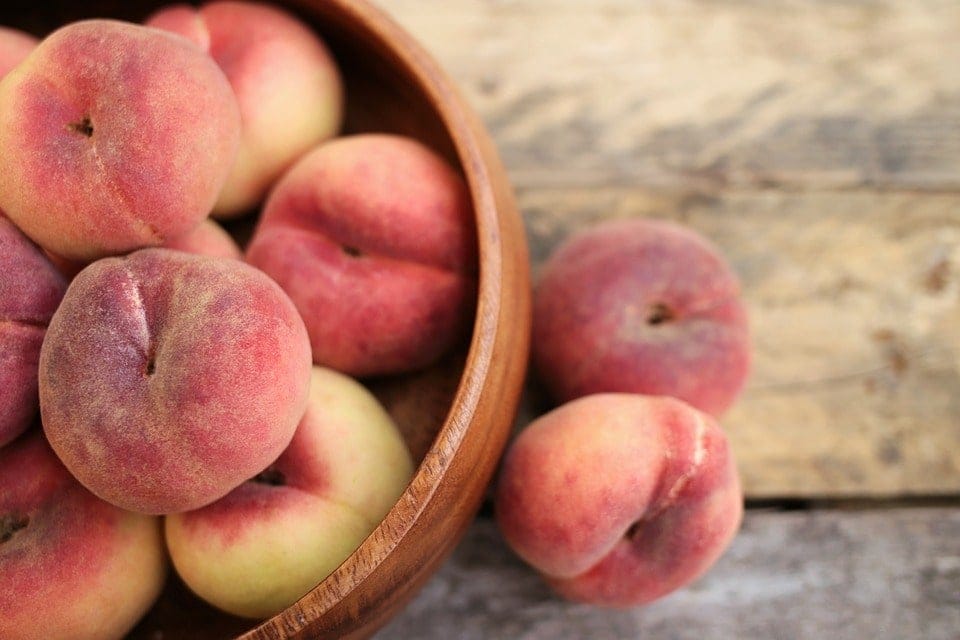
Bearded dragons are captivating creatures cherished for their unique charm and sociable dispositions. For those of us lucky enough to call these scaly companions our pets, a common curiosity revolves around their dietary preferences. One query that often arises is: can bearded dragons relish peaches?
To cut to the chase, peaches are not toxic for bearded dragons to eat. However, they really are not the healthiest snack for your bearded dragon and should not constitute a significant portion of their diet.
Peaches: A Nutritional Overview
Peaches bring a burst of sweetness and a whole host of nutrients with them. If you didn’t know, they’re full of important vitamins, such as vitamins C and A. Both are good for your bearded dragon, helping them to stay healthy and happy. Plus, the fiber in peaches is a big help when it comes to digestion—something really important for your pet’s overall well-being.
That being said, peaches aren’t without their drawbacks. You’ve got to remember that these juicy fruits also carry sugar. A little sugar here and there won’t cause any trouble, but if your dragon starts eating peaches too often, you might be inviting some health troubles like weight gain and dental problems. So, while peaches are a nice occasional treat, your dragon’s diet should mostly stick to vegetables, leafy greens, and insects.
Even with all their good sides, peaches aren’t the perfect match for a bearded dragon’s dietary needs. You see, they don’t carry enough calcium, something absolutely crucial for the health of these reptiles. If their diet lacks enough calcium or if the balance between calcium and phosphorus goes out of whack, serious health problems could be on the horizon, like Metabolic Bone Disease (MBD). So, while the odd peach isn’t going to do any harm, they shouldn’t make up a big part of your pet’s diet.

Serving Peaches to Your Bearded Dragon: A Guide
If you decide to add peaches to your bearded dragon’s treat rotation, proper preparation is paramount. Start by selecting a fresh, ripe peach. Canned peaches should be avoided, as they often come with added sugars or syrups that are unhealthy for your pet.
The peach should be thoroughly washed to remove any traces of pesticides or other harmful substances. After washing, remove the pit and cut the peach into small, manageable pieces for your bearded dragon. Remember, the size of the peach pieces should align with the space between your pet’s eyes to prevent choking hazards.
Peaches should be served raw to your bearded dragon. Cooking can alter the nutritional content and may make the peaches harder for your pet to digest. After feeding, monitor your pet to ensure they are enjoying their treat and not experiencing any adverse reactions. Some signs to watch for include changes in appetite, stool, or behavior.
Peaches in Moderation and Better Bearded Dragon Foods
Giving your bearded dragon a peach every now and then can be a real delight. It’s a sweet, refreshing snack that also comes with its own bag of nutrients. But you must remember that peaches come with a fair share of sugar and don’t have enough calcium, so they shouldn’t be the main food your dragon munches on.
What should a bearded dragon’s diet look like then? Well, it’s best to keep it varied—a good mix of protein sources (think insects), lots of vegetables, and leafy greens. Then you can add in fruits like peaches as a rare treat. This will make sure your dragon gets a tasty, nutrition-packed diet. When you’re introducing new foods, though, take it slow and keep a keen eye on your pet. Watch out for any changes or signs that something isn’t right.
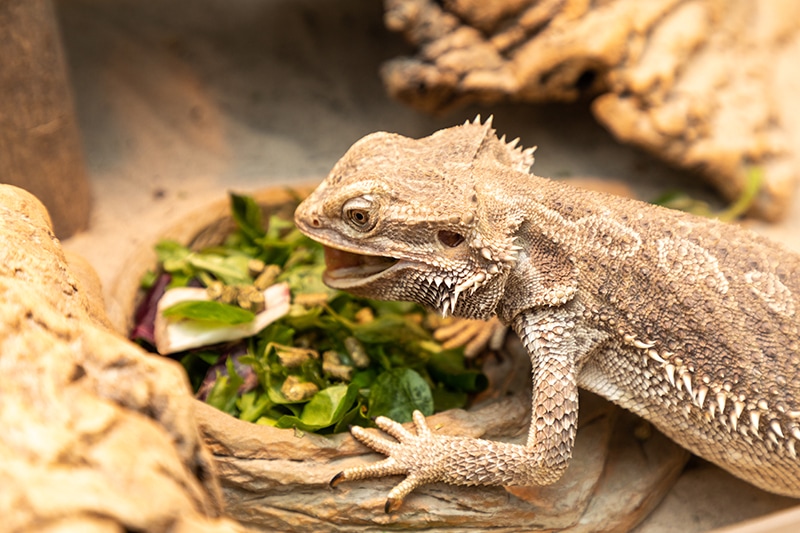
Conclusion
In conclusion, while peaches are a delightful treat for your bearded dragon, moderation is the mantra to follow. It’s crucial to remember that, like most fruits, peaches should only make up a small fraction of your pet’s diet, with the primary nutrition coming from leafy greens, vegetables, and proteins like insects.
As always, observe your pet closely after introducing any new food into their diet to ensure they react well. Remember, each bearded dragon is unique and may have different preferences and tolerances.
Featured Image Credit: Johnny Lemonik, Shutterstock


